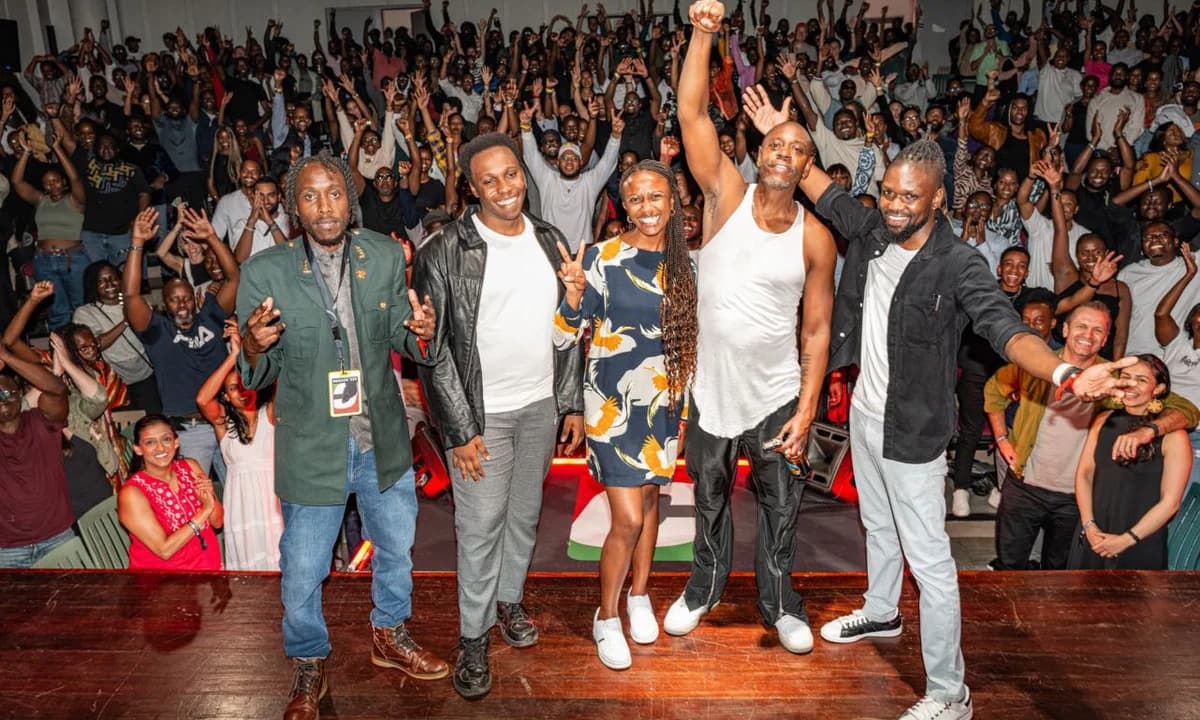We're loading the full news article for you. This includes the article content, images, author information, and related articles.
In the silence between the tear gas canisters and chants of “Ruto must go!” a curious sound rises: laughter. Sardonic, sharp, often viral — the punchlines of Kenya’s protest culture do not always come from political podiums or activist circles.

The Laugh That Shook the Nation: How Kenya’s Comedians Fuel Protest with Satire
Byline: Nairobi, Kenya –
In the silence between the tear gas canisters and chants of “Ruto must go!” a curious sound rises: laughter. Sardonic, sharp, often viral — the punchlines of Kenya’s protest culture do not always come from political podiums or activist circles. Sometimes, they emerge from comedy stages, TikTok reels, and street skits. In Kenya, where oppression wears a suit and inflation walks hand-in-hand with empty pockets, satire has become a weapon — not of mass distraction, but of mass resistance.
In medieval times, jesters were allowed to speak truth to kings. In modern Kenya, comedians play a similar role, wielding humor as a form of rebellion. Take Butita, the digital satirist whose sketches routinely lampoon fuel hikes, “bottom-up” politics, and policy blunders. Or Crazy Kennar, whose relatable skits cloak deeper critiques of economic inequality and social hypocrisy.
Through punchlines and parody, they draw laughter not just from absurdity, but from recognition — a communal nod to the dysfunction Kenyans see daily.
“When Kennar posts a video about ‘Sasa utawapea nini?’,” says 23-year-old protester Njoki in Nairobi, “we laugh because it’s true. It hurts, but it’s better than crying. And it reminds us we’re not alone.”
What begins as satire often morphs into solidarity. The XYZ Show, a staple of Kenya’s satirical media landscape, paved the way — with latex puppets and biting scripts — for a generation of comedians who dared to mimic presidents, ministers, and scandal-ridden elites.
Today’s protest culture, especially among Gen Z, draws on this tradition. During the July 2024 anti-finance bill demos, it wasn’t just banners and whistles — it was memes. Gigantic placards with quips like “Umeiba hadi future yetu?” or “Ruto, juu ya nini?” carried the spirit of stand-up into the streets.
“Humor disarms power,” says political cartoonist Gado, whose drawings have ruffled feathers from State House to Parliament. “A corrupt leader can deny facts, but it’s harder to deny ridicule.”
When a kilo of maize flour exceeds KSh 200 and jobs vanish like election promises, comedy becomes not escapism — but a coping mechanism. In Nairobi’s informal settlements, underground stand-up circuits thrive. TikTok and YouTube have become platforms not just for entertainment, but for political education.
Young creators — like Terence Creative and Cartoon Comedian — frame satire within the idioms of sheng, sarcasm, and everyday struggle. Their content resonates because it’s not abstract. It’s personal. It’s about mothers boiling stones, boda boda riders surviving taxation, and students whose dreams are trapped in HELB loan repayments.
And when comedians turn their jokes into rallying cries — mocking government incompetence or highlighting police brutality — they humanize resistance.
Yet satire in Kenya is not without peril. In 2023, several comedians were summoned by DCI over politically “sensitive” content. Some lost brand deals. Others faced digital harassment or police visits. But as they say in comedy: timing is everything.
“The more the state tries to suppress laughter,” says Zeddy, a female comedian known for her sharp monologues, “the louder it becomes. Because laughter is truth. And truth always finds its way.”
In the age of hashtags and 15-second clips, satire has replaced the soapbox. Protest doesn’t always wear boots — sometimes, it wears wigs, speaks in accents, and delivers punchlines. And as Kenya’s youth redefine activism in digital arenas, the line between comedian and revolutionary blurs.
In their laughter lies critique. In their jokes, justice. And in the uproarious applause after each skit, the pulse of a people who will not be silenced — not by riot police, not by empty speeches, and certainly not by fear.
Because in Kenya, even in resistance — we laugh.
Keep the conversation in one place—threads here stay linked to the story and in the forums.
Sign in to start a discussion
Start a conversation about this story and keep it linked here.
Other hot threads
E-sports and Gaming Community in Kenya
Active 9 months ago
The Role of Technology in Modern Agriculture (AgriTech)
Active 9 months ago
Popular Recreational Activities Across Counties
Active 9 months ago
Investing in Youth Sports Development Programs
Active 9 months ago